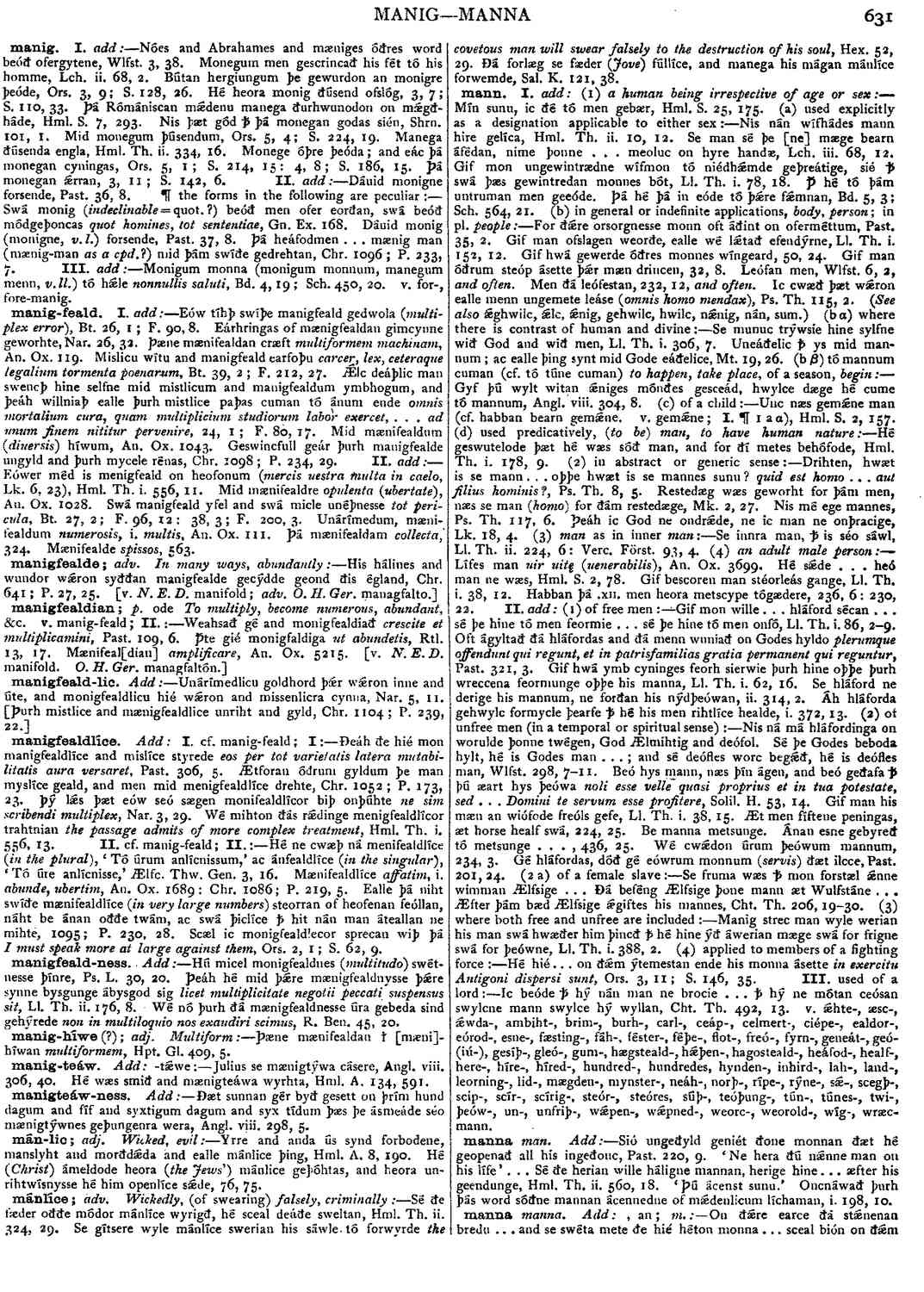manig
-
Nóes and Abrahames and mæniges óðres word beóð ofergytene,
- Wlfst. 3, 38.
-
Monegum men gescrincað his fét tó his homme,
- Lch. ii. 68, 2.
-
Bútan hergiungum þe gewurdon an monigre þeóde,
- Ors. 3, 9; S. 128, 26.
-
Hé heora monig ðúsend ofslóg,
- 3, 7; S. 110, 33.
-
Þá Rómániscan mǽdenu manega ðurhwunodon on mǽgðháde,
- Hml. S. 7, 293.
-
Nis þæt gód ꝥ þá monegan godas sién,
- Shrn. 101, 1.
-
Mid monegum þúsendum,
- Ors. 5, 4; S. 224, 19.
-
Manega ðúsenda engla,
- Hml. Th. ii. 334, 16.
-
Monege óþre þeóda; and eác þá monegan cyningas,
- Ors. 5, 1; S. 214, 15: 4, 8; S. 186, 15.
-
Þá monegan ǽrran,
- 3, 11; S. 142, 6.
-
Dáuid monigne forsende, Past. 36, 8, ¶ the forms in the following are peculiar :-- Swá monig (indeclinable — quot. ?) beóð men ofer eorðan, swá beóð módgeþoncas
quot homines, tot sententiae,
- Gn. Ex. 168.
-
Dáuid monig (monigne,
v. l.
) forsende,- Past. 37, 8.
-
Þá heáfodmen . . . mænig man (mænig-man
as a cpd.
?) mid þám swíðe gedrehtan,- Chr. 1096 ; P. 233, 7.
-
Monigum monna (monigum monnum, manegum menu, v. ll.) tó hǽle
nonnullis saluti,
- Bd. 4, 19 ; Sch. 450, 20.
Bosworth, Joseph. “manig.” In An Anglo-Saxon Dictionary Online, edited by Thomas Northcote Toller, Christ Sean, and Ondřej Tichy. Prague: Faculty of Arts, Charles University, 2014. https://bosworthtoller.com/55099.
Checked: 0